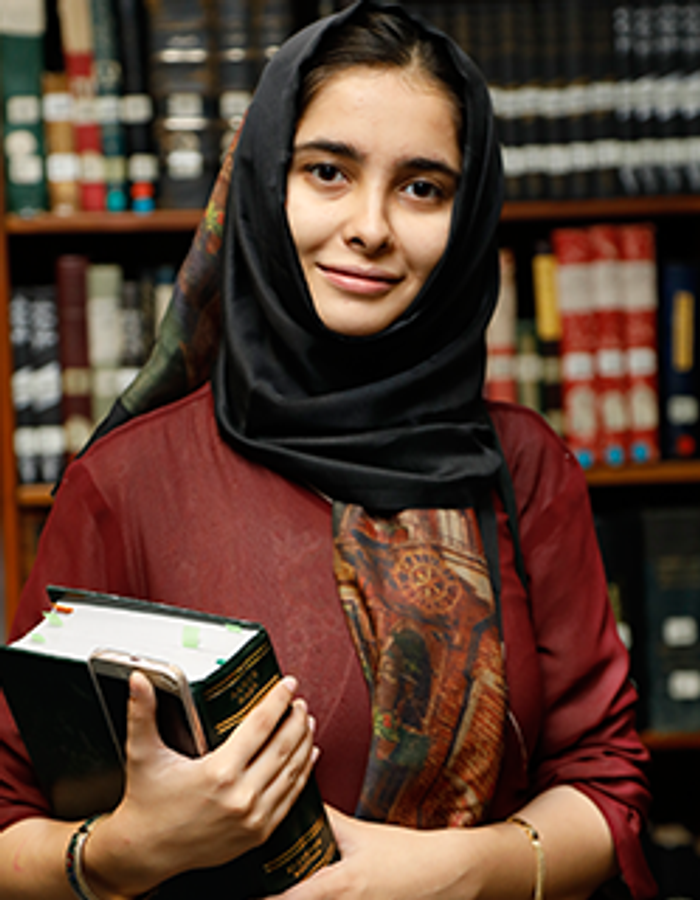How small nonprofits and large Trusts feel (differently) about AI

Earlier this month, we had the pleasure of running a webinar in partnership with Alliance magazine, shedding light on the (hot) topic of Philanthropy and AI. I was joined on the panel by Karen Gill, Vice President of Operations, Patrick J. McGovern Foundation and Catherine Miller, Director, European & AI Society Fund.
Our discussion centred around key issues surrounding generative AI, encapsulating both the anticipated potential of this revolutionary technology and the concerns about its training methodology and possible applications. The full recording is available below:
Complementing this, we previously organised an introductory masterclass webinar on generative AI in April as part of our BRIDGE programme. This session was more pragmatic in its approach, involving live demonstrations and group discussions, allowing organisations to exchange thoughts on their existing or prospective use of AI tools. A key component of both webinars was the interactive polls, which posed identical questions to both audiences, offering an interesting contrast in perceptions towards AI.
The Alliance webinar attendees primarily comprised representatives from Trusts, Foundations, and larger nonprofits – we’ll categorise this group as "large Trusts". Conversely, the masterclass participants were from small grassroots nonprofits – referred to as "small organisations". With a global representation across both groups, we recorded 25 responses from our masterclass poll and 55 from the Alliance poll. Although these figures are not statistically significant, they offer a fascinating insight into consistent and convergent views on this subject.
Poll results
The most striking statistic was that 98% of large Trusts were concerned about the ethical considerations of using AI. That is an enormous majority, even compared with 88% of small organisations.
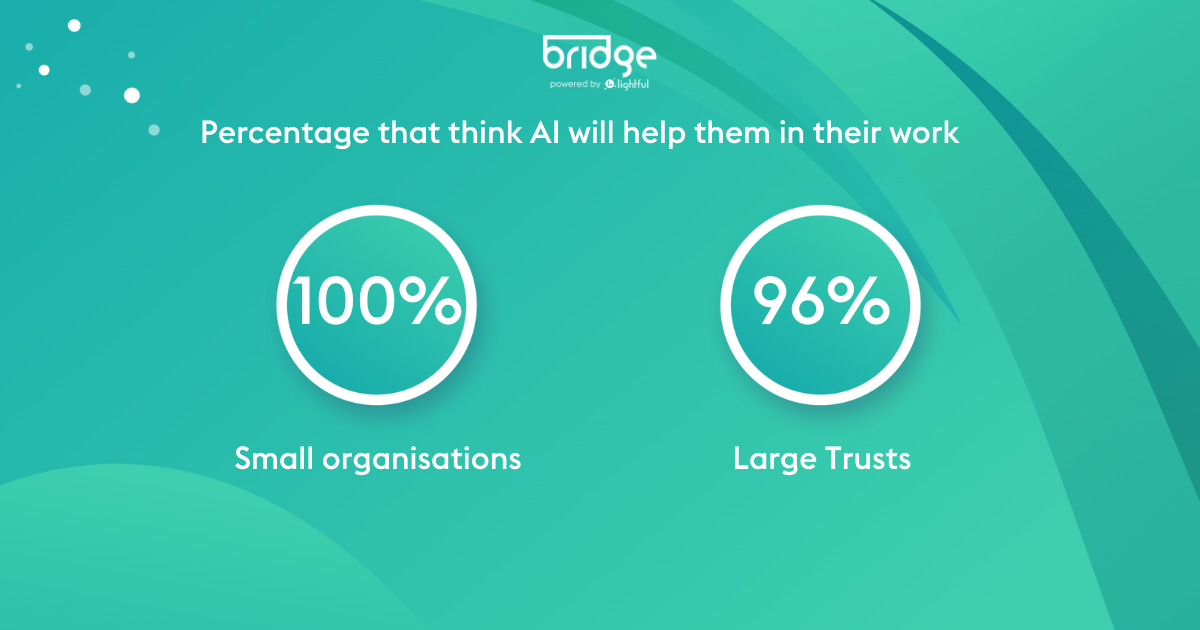
However, a contradictory element emerged when we looked at the perceived benefits of AI. As many as 96% of large Trusts and 100% of small organisations were convinced AI would aid their work. The conundrum then arises - how does one reconcile these concerns with the envisioned benefits? And do the potential benefits outweigh the ethical concerns?
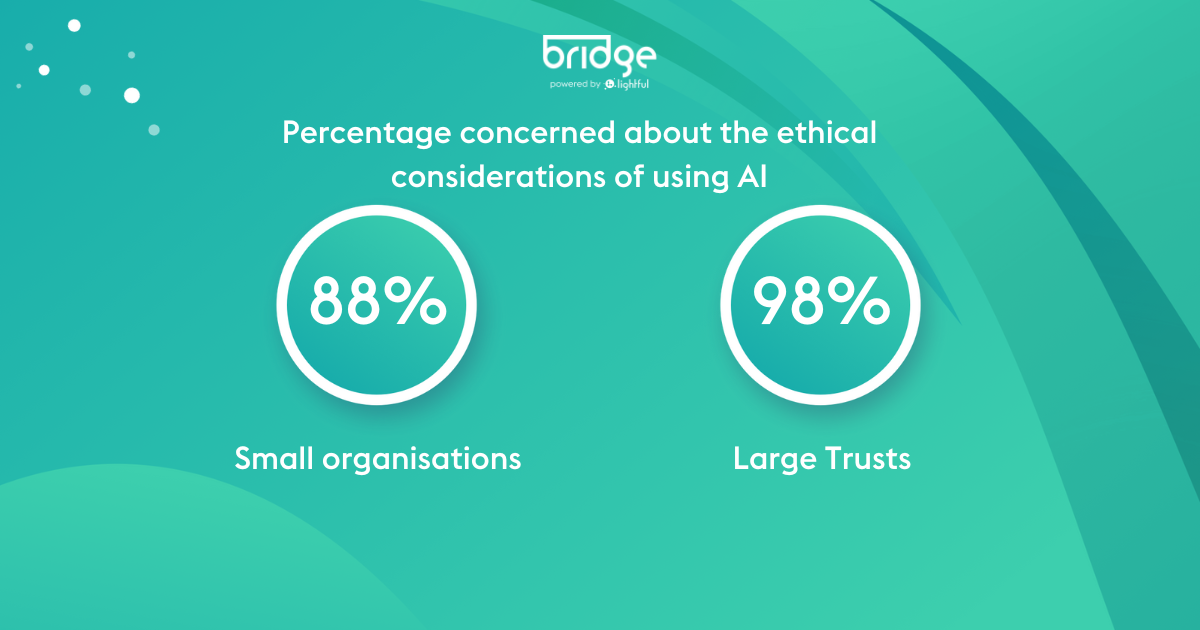
Interestingly, all the small organisations intend to incorporate AI in their work, compared to 84% of large Trusts. It appears, at least for the smaller grassroots organisations, the perceived benefits supersede their concerns.
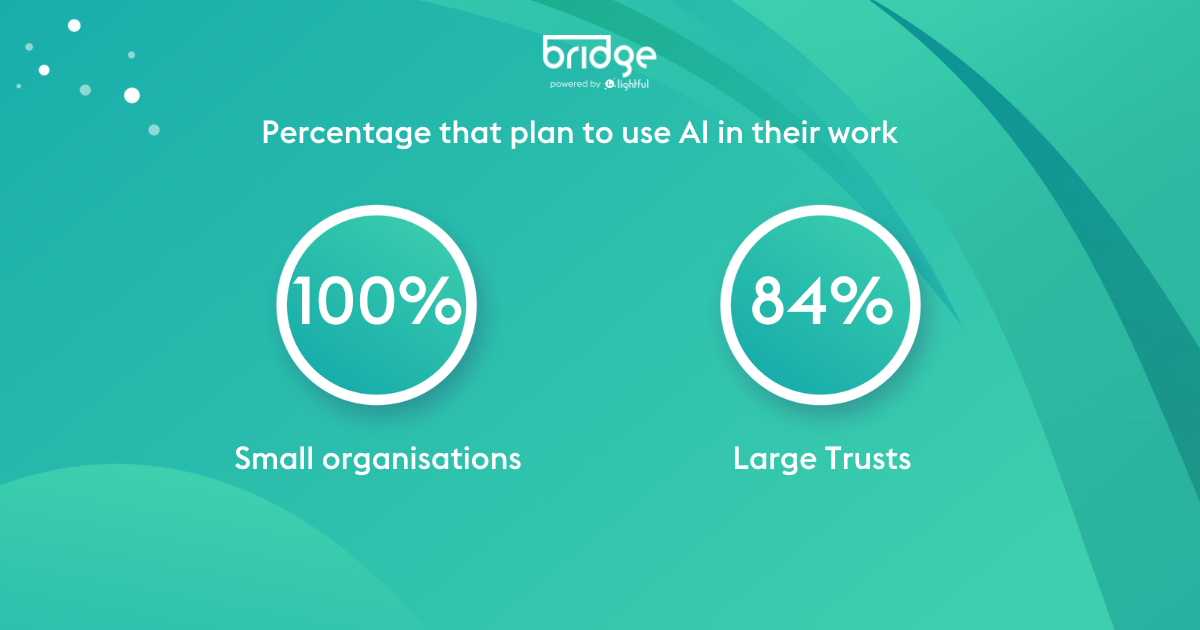
Further, 92% of small organisations claimed they understood how AI could be integrated into their operations, whereas only 66% of large Trusts echoed a similar understanding. This discrepancy is likely due to the practical nature of the masterclass versus the theoretical discussion panel.
Do the ends justify the means?
Still, across both groups, there is a clear dilemma: do the ends justify the means? We have asked this existential question before in the context of ethical dilemmas of social media for the nonprofit. Though it may seem like an evasion, the answer to this question truly depends on each organisation's individual circumstances.
Each organisation operates in a unique context, with specific goals, resources, and ethical considerations. Thus, the extent to which AI's benefits outweigh its potential concerns will differ across organisations. For example, a small nonprofit working in a data-rich environment may find AI tools invaluable for their work, while a large trust with ample human resources might prefer traditional methods due to ethical considerations or practical constraints. Therefore, the decision to embrace AI hinges on a careful assessment of one's unique needs, resources, and ethical standpoint.
As we explored in our recent post on what the breakneck speed of AI means for Philanthropy, how you answer this question is likely to change as soon as you have an answer, because AI technology is developing so fast. We recommend that nonprofits start an internal conversation and draft some loose guidelines, with the expectation that this will need to be revised soon, and many times more in the future. It is better to be pro-active and have an idea of what those guardrails look like instead of being forced to come up with something in a panic if you have to react.
What does this data tell us?
Whilst this is data from a small sample, it clearly illustrates one of the primary dilemmas nonprofits and Trusts are faced with when approaching AI. The question 'Do the ends justify the means?' is considerably harder to answer in this context precisely because of the pace of change and emerging nature of the AI tools. However, this also means that a long drawn-out policy process is not a good approach to take, and organisations should focus instead on having an opinion and starting a debate. No one really knows all the answers, but ignoring this massive shift is not a good strategy.
To learn more
We will be hosting another webinar on the 21st June at 4pm BST / 11am Eastern on the topic of Artificial Intelligence: what are the opportunities for nonprofits?
Joining me in discussion will be two esteemed speakers and the co-authors of The Smart Nonprofit: Staying Human-Centered in An Automated World:
- Beth Kanter - thought-leader in digital transformation and wellbeing in the nonprofit workplace
- Allison Fine - prominent writer and strategist on the use of technology for social good.
Registration is free, and the recording will be shared on our blog afterwards.
Latest articles
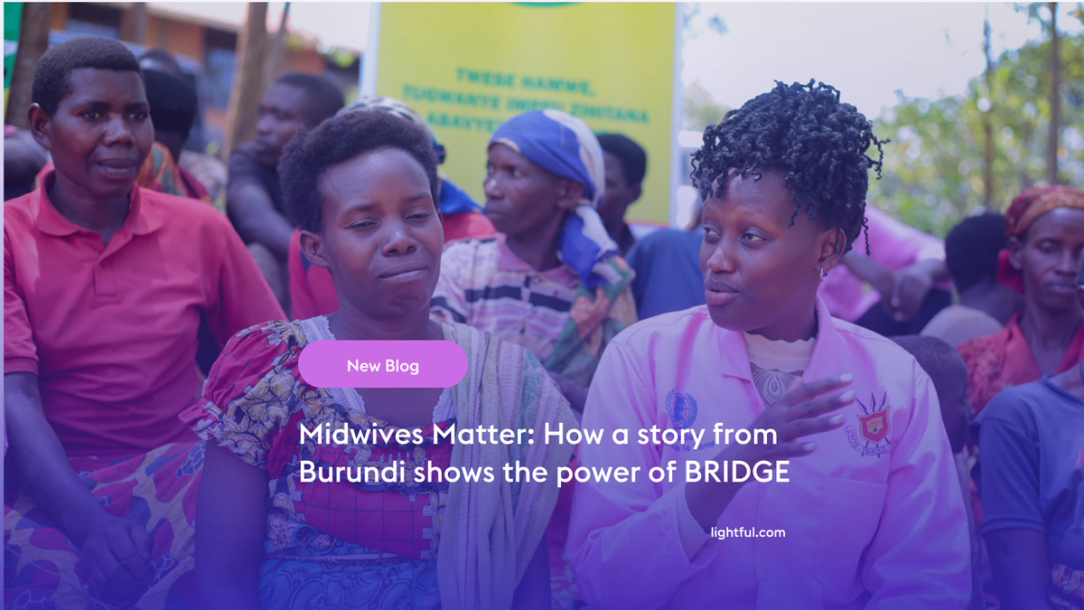
Over the past year, Lightful and the International Confederation of Midwives (ICM) have supported Midwives Associations across Africa, South Asia and the Eastern Mediterranean to build their digital confidence through our BRIDGE programme. These organisations were starting from very different places, but all shared the same goal: to use digital tools to strengthen their voice, raise their visibility and advocate for better outcomes for women and babies.
Related posts
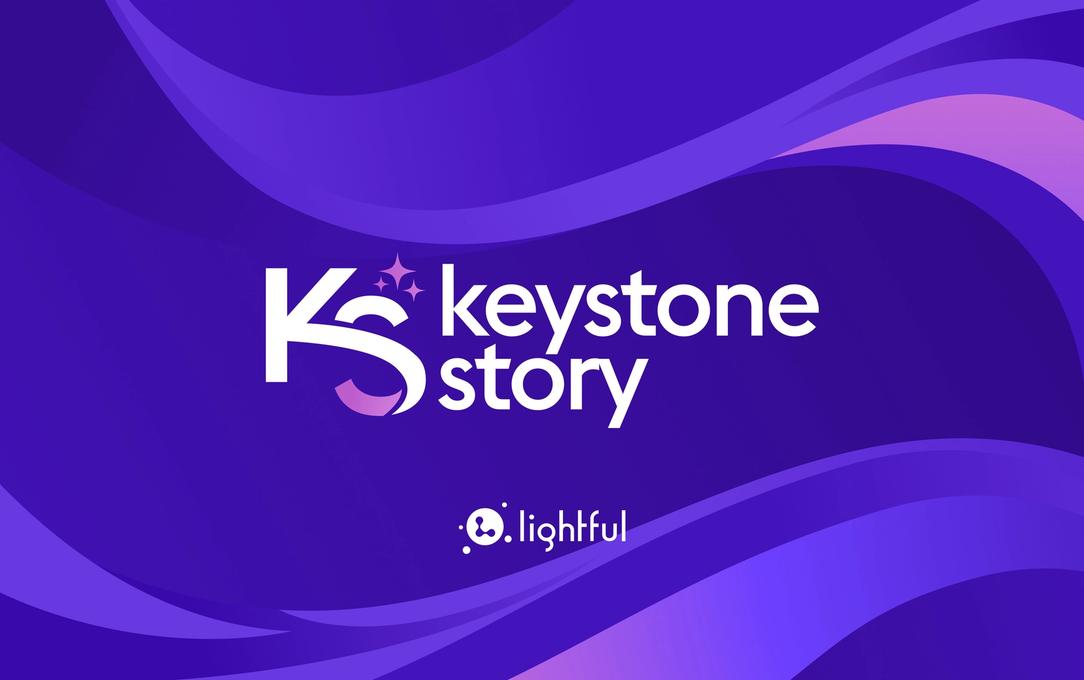
AI and beyond… meeting the moment with The BRIDGE Collective
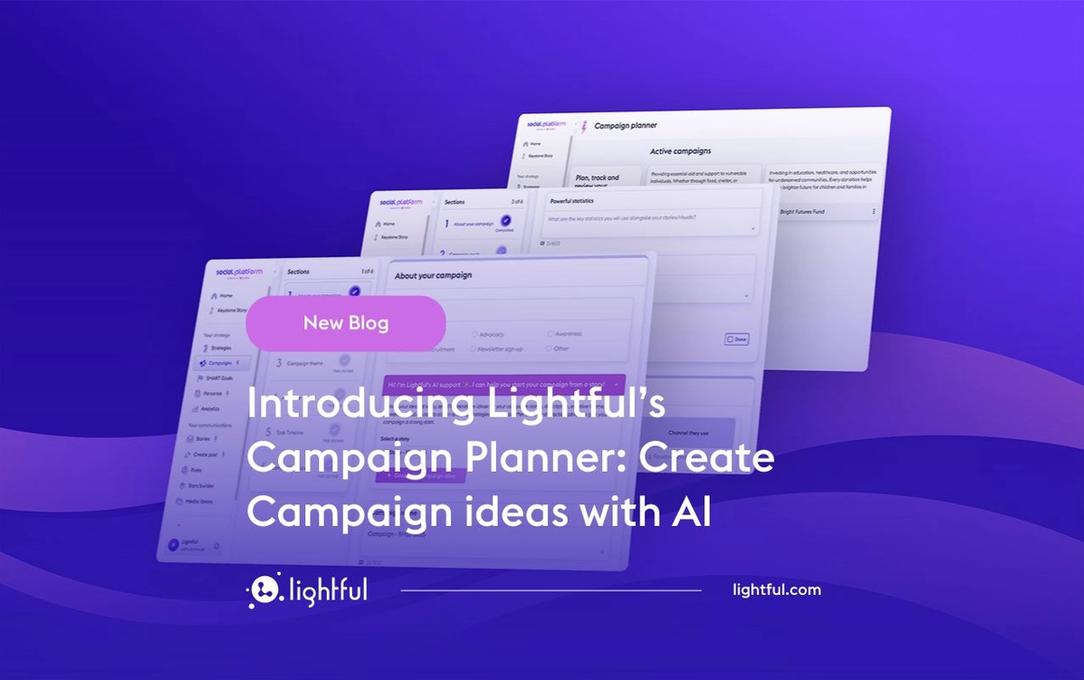
Introducing Lightful’s Campaign Planner: Create Campaign ideas with AI
See who we help
Contact us
Want to learn more?
Email Jonathan and start a conversation





